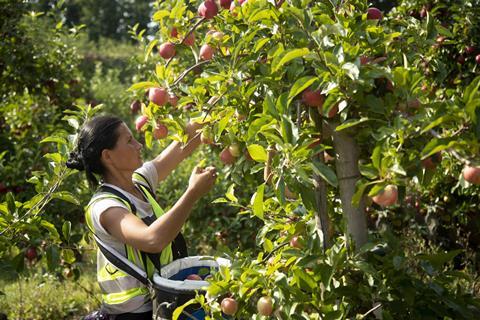
Growers are warning a wage increase for their seasonal workers from next month will lead to an “administrative nightmare” and “uncompetitive” prices, with British strawberries set to be up to £1/punnet more expensive than Dutch competitors due to the rules.
Under new Home Office guidance, weekly pay for seasonal workers is due to rise by 38% from £356.40 (or £8.91 per hour) to £492.30 (£12.31 per hour) for a 40-hour week from 6 April.
The national living wage is also rising in April (from £8.91 to £9.50 per hour) and farmers had, until recently, been under the impression they would be paying a higher rate of £10.10 to seasonal workers – in order to attract more people to the workforce and accommodate those working fewer hours per year due to the seasonality of the work.
However, the new guidance stipulates that those on a seasonal worker visa must receive at least £25,600 per annum (or £12,800 pro rata) for the six-month season, regardless of hours worked.
The average seasonal worker is employed on 40-hour week, which equates to £12.31 per hour under the new guidance.
But given the larger-than-expected increase in costs, farmers are now calling on Defra and the Home Office to delay the plans and have asked for a consultation on the guidance so that it meets the needs of the sector.
“Broadly speaking, the way the guidance is written means the less you work the more you get paid,” said Ali Capper, chair of the NFU’s horticulture and potatoes board.
The number of hours per week that a seasonal worker can work under the visa is capped at 48 hours, meaning that the lowest farmers will be able to pay is £10.26 per hour. On the other hand, should workers be unable to harvest due to weather conditions, they will still have to be paid £492.30 per week regardless, meaning farmers could be paying £492.30 for a week where no work was done and no produce picked.
“This is not fit for a job where work levels fluctuate due to the weather, which we cannot control,” she added.
This raise in rate had left farmers, “shocked, angry, incredulous” according to Capper, who said the wage hike made UK farms “uncompetitive” as they would “have no choice but to pass costs on to the retailer”.
Pig crisis conflict to seasonal wage confusion: five key takeaways from the NFU Conference 2022
And she warned this situation would only worsen. “For this season, there is a limit to where retailers can go to buy but where they can they will and if this gets established, growers cannot compete… We will have no choice but to pass this cost on to retailers.”
“It is bonkers that the government is driving this, when we are in a cost-of-living crisis,” she added.
Her concerns were shared by an exasperated senior food sector source, who angrily bemoaned the officialdom of “a**eholes” at the Home Office who had refused to consider amending the rules, and told The Grocer British strawberries would cost as much as £1 per punnet more than Dutch strawberries due to wage hike.
Meanwhile, Andrew Opie, director of food & sustainability at the British Retail Consortium, said: “Retailers support growers in raising concerns that this could add unnecessary costs to a supply chain which is already under pressure, and as consumers are tightening their belts.”
Due to supermarket assurance schemes requiring all workers doing the same job to be paid the same, farmers would have to pay all pickers this new rate regardless of their right to work, Capper suggested.
She also warned of an “administrative nightmare, burden, and massive costs” to the industry, as farmers would have to manually adjust each individual worker’s pay rate every week to meet the minimum of £492.30.
There would also be knock-on effects, as according to Capper if wages rose in one part of the industry, manufacturers and packers would also have to raise their rates to meet demand, passing further costs on to the retailers.
The guidelines are the same as the skilled worker route, and are deemed as “unfit for purpose”. “Is it laziness or naivety?… I can’t see the logic”, she said.
And according to Capper, there were only “days” before it started to jeopardise permits for this season.
The Grocer understands talks are underway to look into the guidance, but at the time of publishing the NFU and farmers had received no formal feedback on their requests to the government.







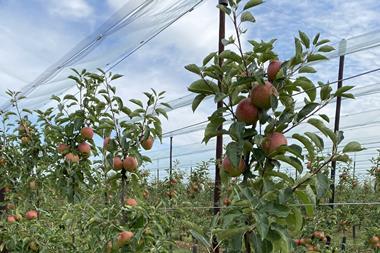
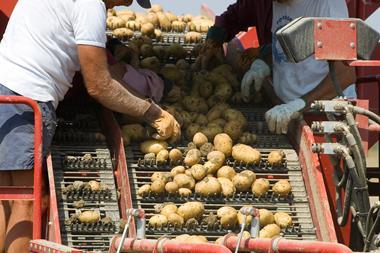

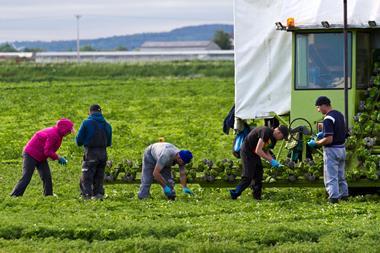
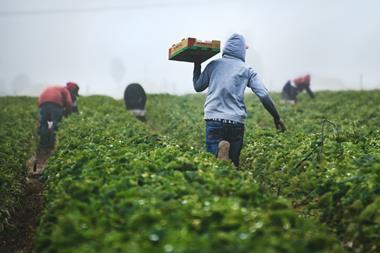
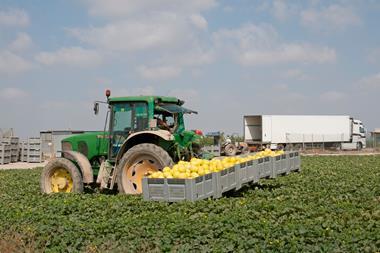






No comments yet